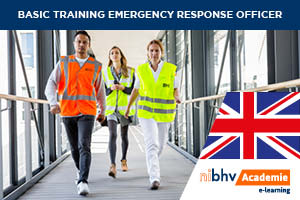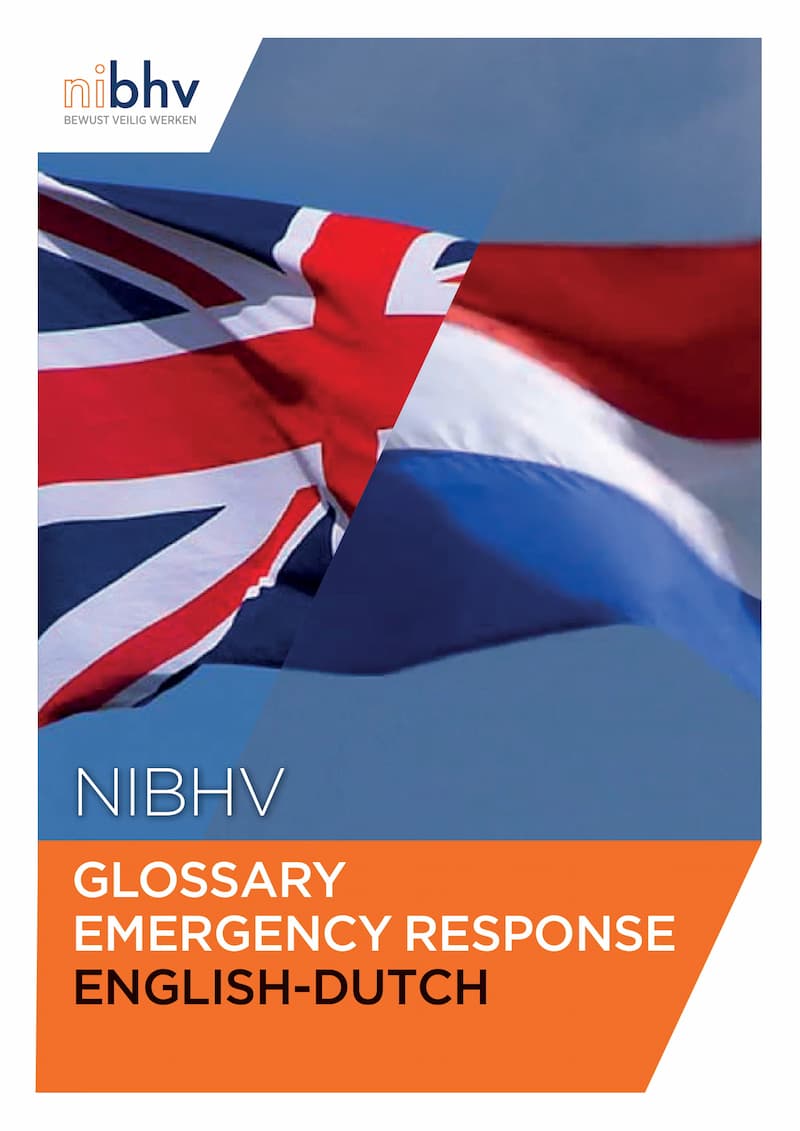Emergency Response Officer
Working Conditions Act (in Dutch: Arbeidsomstandighedenwet)
Emergency response officers can make a difference in the event of an incident or disaster on your company’s premises. They provide first aid in the event of accidents, fight a small, starting fire, or evacuate a building or the grounds. If necessary, they call the emergency services
The Working Conditions Act distinguishes the following emergency response tasks:
• providing first aid
• containing and fighting fires and containing accidents
• alerting and evacuating employees and all other persons present on the premises in the event of an emergency
ER matters
A good ERO or emergency response team is literally vital for your employees and organisation. Emergency response officers limit the damage to the organisation, enabling a rapid return to work and limiting the consequences for any casualties
Wherever work is carried out, there must be arrangements for emergency response. Emergency Response Officers (EROs) are regular employees who perform emergency response tasks if an incident occurs. Their employer must ensure that they have been properly trained and that they keep their skills up to the required standard to conduct their duties correctly.
There must always be sufficient EROs, also if one or more of them are ill or on leave.
ER team tasks in the event of a fire
The ER team will generally reach the scene of an incident before the fire brigade, ambulances or police and can make a significant difference in the early stages of an incident. A good ER team can detect and extinguish a small, starting fire, thus preventing a major fire and/or limiting the broader consequences, such as casualties, sickness absence, loss of production or even bankruptcy. By intervening quickly, the ER team can minimise the development and spread of smoke, thus increasing the chance of successfully extinguishing the fire. In addition, the ER team can limit and prevent the spread of fire by closing doors.
ER task in the event of an injury
Providing first aid can help minimise the consequences of an injury and have a beneficial effect on recovery. In the event of a medical emergency, such as cardiac arrest, the ERO can make a significant difference within the first 6 minutes to the casualty’s chance of survival.
In the event of minor injuries, EROs will often be able to take care of matters themselves. Sometimes the intervention of emergency responders will be necessary. The ERO can make a valuable contribution by supporting the casualty and ensuring that the emergency services are rapidly notified.
Trained emergency response officers in every company
Every employer must ensure that there is sufficient emergency response capacity in his business. The capacity required is determined by a Risk Identification and Assessment (RIE). Depending on the nature, scale, location and any other risks relating to the organisation’s activities, one or more employees must be trained as Emergency Response Officers. Each ERO must be trained for one or more emergency response task.
The emergency response team as a whole must be trained and well-practised in taking action in the event of incidents that might occur on your company’s premises, thus being capable of fulfilling all the necessary tasks.
The employer must also ensure that they have the required ER equipment. Safety and health at work are regulated by the Working Conditions Act. Under this Act, employers are obliged to inform all their employees about how emergency response is arranged. Emergency response is designed to restrict the effects of unavoidable work related risks in your organisation. These include fire or employees falling, tripping over or cutting themselves.
The arrangements and procedures for emergency response are agreed in consultations between employer and employees. Depending on the nature of the organisation, this consultation occurs during a meeting with the staff or their representatives, for example the Works Council.
Read also more on ER obligations on our page: ER legislation and regulations.
How can NIBHV assist you with ER?
Each year, more than 300,000 emergency response officers receive the ER certificate from NIBHV certified trainers. In addition, a select group of ER trainers receive the Emergency Response Training Institutes Quality Mark. They commit to NIBHV and our high standards for the longer term, enabling us to be sure that these trainers will deliver high-quality work when assisting you with your ER arrangements.
Custom certification
To ensure that ER certification best suits an organisation’s requirements, NIBHV offers the option of customisation. We do this for both the certification of the basic ER course as well as for separate modules and refresher courses.
NIBHV helps both with qualitative education in the ER market and as an advisory counsil for companies and institutions that look to improve the level of their ER. For instance with European tenders for ER training.
Literature
NIBHV creates official learning literature for ER, both in Dutch and English. The literature for Basic Training – Emergency Response Officer has been fully revised in 2019 and available online via our webshop. Order the newest version of the learning material Emergency Response Officer now online.
Emergency Response course
NIBHV recommends a total course duration of at least 16 hours. Trainers can decide for themselves how to arrange the course, for example in two whole days or four half days. The practical part of the course is an essential step in your learning process, enabling you to put all the theory you have learnt into practice. During the practical course, the ER instructor will help you learn all the skills that you will need to demonstrate that you’ve achieved the required learning objectives.
You can obtain information about dates, venues and costs from various safety trainers.
You can also opt for the online version with practical component: you then do the theory via e-learning, and attend a one-day course focused on acquiring the skills. Ask your trainer about the options.
Download our glossaries English – Dutch
Want to know more?
Contact NIBHV by email (info@nibhv.nl) or send your message via the contact form below:



